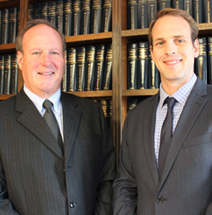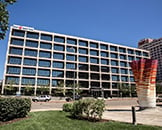Premises Liability
Premises liability laws define the legal duties of property owners to protect persons who come in contact with their property. The duty of care landowners owe an individual on their property may differ by jurisdiction. Some states follow common law, where the landowner’s duty may change depending on whether the person who enters their land was a licensee, invitee or a trespasser. The level of care a landowner owes to licensees or invitees may be much higher than to an individual who is on their property without permission (trespasser). The duty owed, in other words, may be determined by the relationship between the injured person and the property owner.
Landowners Legal Duty of Care
An invitee is any person who enters the owner’s property by invitation, whether actual or implied. When the property at issue is a public place or a business, an implied invitation is often found. Under this system, property owners owe the highest duty of care to invitees. If the person was invited to the landowner’s property, the landowners have the duty to warn their guest about any dangerous conditions on their property. The owners also have a duty to inspect their property to discover any hazards, and to correct or warn of any hazards they find, to make it safe for the invitee.
If the property owner does not keep invitees safe and they are injured as a result, the injured party may have a legal claim against the property owner, if they can show that the owner was negligent. There are exceptions, however — in many instances, if there is a dangerous condition on the property that is considered obvious to a reasonable person, the property owners may not have a duty to warn their guests of this condition.
A licensee is a guest of the property owner who entered the owner’s property with permission. Similar to invitees, if the individual on the property is a licensee the landowner also has a duty to warn him or her of any unsafe conditions on the property that are known to the landowner and would not be obvious to the licensee. However, the property owners do not have a duty to inspect the property to discover any hazards, as they would with an invitee.
Alternatively, under this system property owners usually have no duty of care to trespassers, unless the owners discover the trespassers on their property and know of a dangerous condition. In these limited situations, the owner would have a duty to warn the trespasser of the dangerous condition.
In recent years, several states have moved away from the common law designations of invitee, licensee and trespasser. In these states, the landowner owes a reasonable duty of care to any person or persons on their property, no matter whether the individual was invited, had the property owner’s permission to be there or did not have permission to be on the property. These jurisdictions do not base the property owner’s liability or duty to warn on the relationship between the owner and the individual on their property. Instead, owners have a duty to keep their property reasonably safe and warn others of hazards or dangerous conditions under any circumstances.
If you or a loved one have been injured while on the property of another, it is important to speak to a personal injury lawyer in your jurisdiction. A knowledgeable attorney will be able to tell you about the laws in your state, discuss your legal options, answer any questions you have and help you determine the best course of legal action for you based on the facts of your situation.
Preparing to Meet with Your Personal Injury Attorney
To read and print out a copy of the checklist, please follow the link below.
Preparing to Meet with your Personal Injury Attorney
You can download a free copy of Adobe Acrobat Reader here.
Copyright © 1994-2011 FindLaw, a Thomson Reuters business
DISCLAIMER: This site and any information contained herein are intended for informational purposes only and should not be construed as legal advice. Seek competent counsel for advice on any legal matter.







